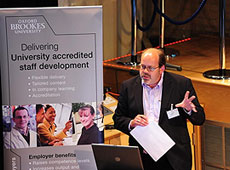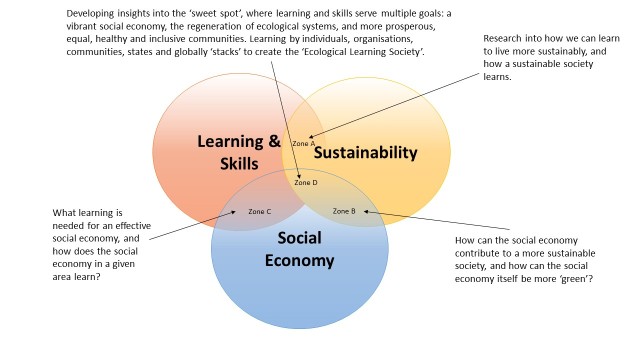I’m Steve Matthews, an independent researcher and consultant with particular expertise in learning & skills, social economy and sustainability. I work independently and with colleagues to help organisations to:
Research and evaluate initiatives and projects. This might include scoping something, assessing how well it’s going, what’s been learned, the impact it’s having and how it can be improved. I’m a qualified and experienced social researcher who can work across the range of research processes – including research design, desk research, fieldwork (delivery and management), data analysis and reporting. My particular strength is in qualitative research, which includes interviewing people in depth about an issue or their experiences, and running lively and engaging group discussions. People who’ve taken part often comment on how productive such conversations are.
Develop and implement initiatives and projects, by helping you to engage and consult with partners, develop new partnerships, and create new ways of doing things. I am also an effective and experienced project manager and contract manager, someone who can be relied upon to get a new piece of work under way or to support you in getting things done. I’m an assured public speaker, an effective group facilitator and trainer, and a clear and persuasive communicator – in English or Spanish. I’m also quite entrepreneurial, with a good track record of winning work commercially and bid writing.
With a career so far that has spanned research and delivery, policy and practice, I’ve helped organisations to plan and understand their work better, adapt to change and to some extent ‘be the change’.

My work tends to be in three fields: learning & skills, social economy and sustainability. And it gets really interesting when two of these areas overlap. For example, how do we learn to live more sustainably, and how does a sustainable society learn? What learning is needed for an effective social economy, and how does the social economy in a given area learn? How can the social economy contribute to a more sustainable society, and how can the social economy itself be more ‘green’?
 Perhaps my dream project is somewhere in the middle of the ven diagram, a place that I’m increasingly coming to think of as the ‘Ecological Learning Society’, or one which empowers people; creates prosperous, innovative and sustainable communities; and involves us living well within ecological limits, respecting each other and other species.
Perhaps my dream project is somewhere in the middle of the ven diagram, a place that I’m increasingly coming to think of as the ‘Ecological Learning Society’, or one which empowers people; creates prosperous, innovative and sustainable communities; and involves us living well within ecological limits, respecting each other and other species.
I’m from Merseyside originally, but also lived in Bilbao for seven years, and so am a fluent Spanish speaker. Nowadays I’m based in Canterbury, Kent and my work tends to be in London / South East and the North West, where I like to hot desk at DoES Liverpool . Outside of work I’m a keen gardener, walker, cyclist, doer of yoga, lover of Iberian / Latin American culture, nature conservation volunteer and (slightly) published writer. I have served as an FE college governor (North Kent College, until January 2022) and have also been a school governor, a voluntary organisation trustee, volunteered in community arts and been active in community sustainability initiatives.
I do a lot of my work by myself, but also enjoy working with a network of highly experienced and trusted colleagues. I also sometimes work as an Associate of SQW.
People often ask me about the web address for this site. Well, it goes back to Learning – The Treasure Within, a report produced for UNESCO by the Jacques Delors commission in 1996. Exactly twenty years later, when I started working freelance, I re-read the report and was struck by the ambition of Delors’ vision. He ‘gets’ the economic importance of learning – as people adapt to rapidly changing labour markets and companies innovate to prosper – but he also challenges us to see the much broader role that learning can play in addressing inequality and environmental challenges, and in helping to promote peace and understanding between different cultures and religions. Delors’ vision is perhaps more resonant now than it was then, and is one that I find especially meaningful.
If you think I can be of help to you in your work, do get in touch!
